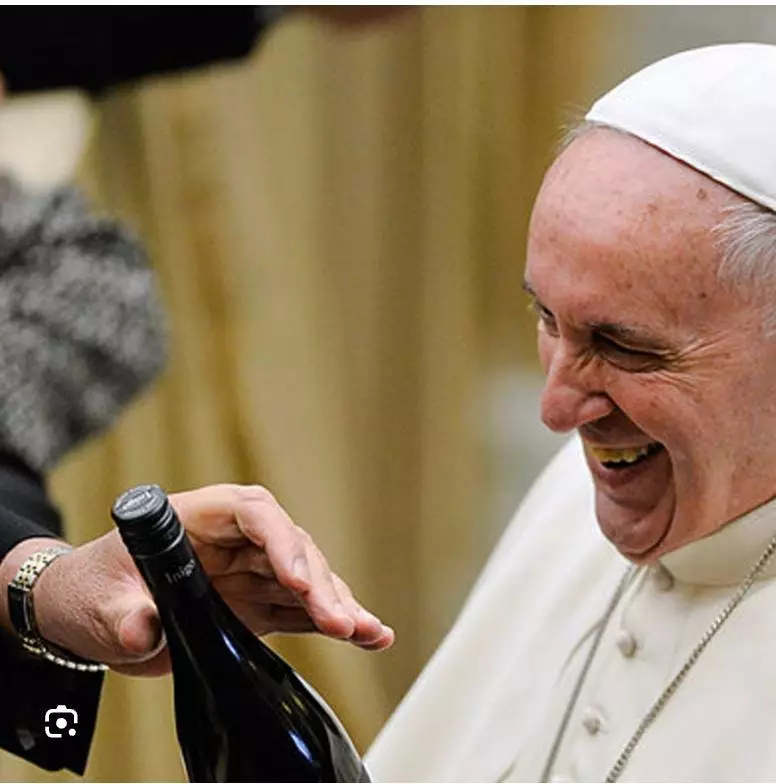The world of wine has always intertwined with culture, religion, and tradition. The recent passing of Pope Francis serves as a poignant reminder of this relationship, particularly for Italian wine producers who have benefitted from his advocacy. Notably, during a special meeting with over a hundred Italian vintners, the pontiff underscored the importance of their craft not merely from a production standpoint but as a divine extension of their stewardship over the land. His heartfelt acknowledgment that wine production represents not only a source of employment but also a divine gift resonates deeply with those who understand the centuries-old practices behind each vintage.
Pope Francis’s Italian heritage, rooted in Asti—the heart of Piemonte’s wine country—provides a backdrop that makes his interest in wine more than coincidental. He understood the cultural significance of viticulture not just as an economic driver but as a symbol of respect for nature and a testament to sustainable practices. He lauded the producers’ commitment to environmental care and the encouragement of healthy consumption patterns, framing these as pivotal in the virtuous cycle of winemaking. His leadership may leave a lasting impact on how the Italian wine industry navigates its future, especially in the face of scrutiny over environmental and ethical practices.
The Changing Palate of Generation Z
While traditional narratives around wine consumption often focus on health benefits or lifestyle choices, a compelling shift is happening among today’s youth—specifically, Generation Z. Recent studies reveal that their declining alcohol consumption is less about health consciousness and more about economic realities. Bourcard Nesin, a senior analyst at Rabobank, exposes a stark truth: “Gen Z ain’t got no money.” Economic instability is a driving force behind their restrained drinking behaviors, challenging the stereotype that young people are merely opting for sobriety for wellness reasons.
Lower incomes, precarious job markets, and the pressures of prolonged living at home have altered how this generation interacts with alcohol. Many members of Gen Z are not rejecting alcohol out of a sober curiosity; rather, they simply cannot afford it. This economic perspective forces society to reconsider how we understand responsible drinking and the motivations behind it. Moreover, with the pervasive presence of smartphones, Gen Z focuses their social lives through digital lenses rather than in person, potentially diminishing their engagement in traditional social drinking contexts.
A Sustainable Mix: Innovations in Beverage Production
The wine and alcohol industry is not only intersecting with personal health and cultural narratives but also embracing an environmentally sustainable future. The ecological advancements in beverage production signify a shifting paradigm, primarily driven by a new breed of innovators. A shining example is Arda Biomaterials, a UK-based company that has secured over $5 million to revolutionize waste products from breweries into eco-friendly materials. This bold leap forward reflects a collective desire to return to a time where natural, plant-based materials ruled, marking a significant shift in sustainability efforts within the industry.
The concept of turning beer and whisky waste into leather-like materials encapsulates the potential for circular economy practices within beverage production. As society grapples with increasing plastic pollution, such pioneering approaches offer viable alternatives that may captivate new generations of consumers who prefer sustainably crafted products. The collaboration with major corporations through initiatives like the 100+ Accelerator only boosts the potential for wide-scale impact, marrying beverage production with sustainability objectives that resonate with modern consumer values.
Exploring the Health Perks of White Wine
In a departure from well-established perceptions, new research published in the Canadian Journal of Cardiology suggests that white wine and Champagne may offer heart health benefits similar to those attributed to red wine. This revelation shifts the focus of wine appreciation beyond mere enjoyment to consideration of health implications. Lead researchers at Fudan University have identified associations where moderate consumption of white wine could lower the risk of sudden cardiac arrest, re-establishing wine’s place within discussions of healthy living.
The study evaluates extensive data drawn from a sizeable UK Biobank sample, underscoring how lifestyle choices significantly influence health outcomes. Here, the narrative extends beyond individual wines to emphasize the collective human responsibility for maintaining health through informed choices. As society increasingly prioritizes wellness, the incorporation of white wines into the conversation about heart health creates stimulating possibilities for consumers historically biased toward red wines alone.
In essence, the dynamic world of wine reflects broader cultural, economic, and health trends that shape our collective experiences. Whether it’s navigating the posthumous legacy of a beloved pope, understanding the complexities of a new generation’s relationship with alcohol, innovating sustainable practices, or cultivating dialogue around heart health, the glass of wine represents more than just a drink; it symbolizes the interconnectivity of life’s many facets.


Leave a Reply